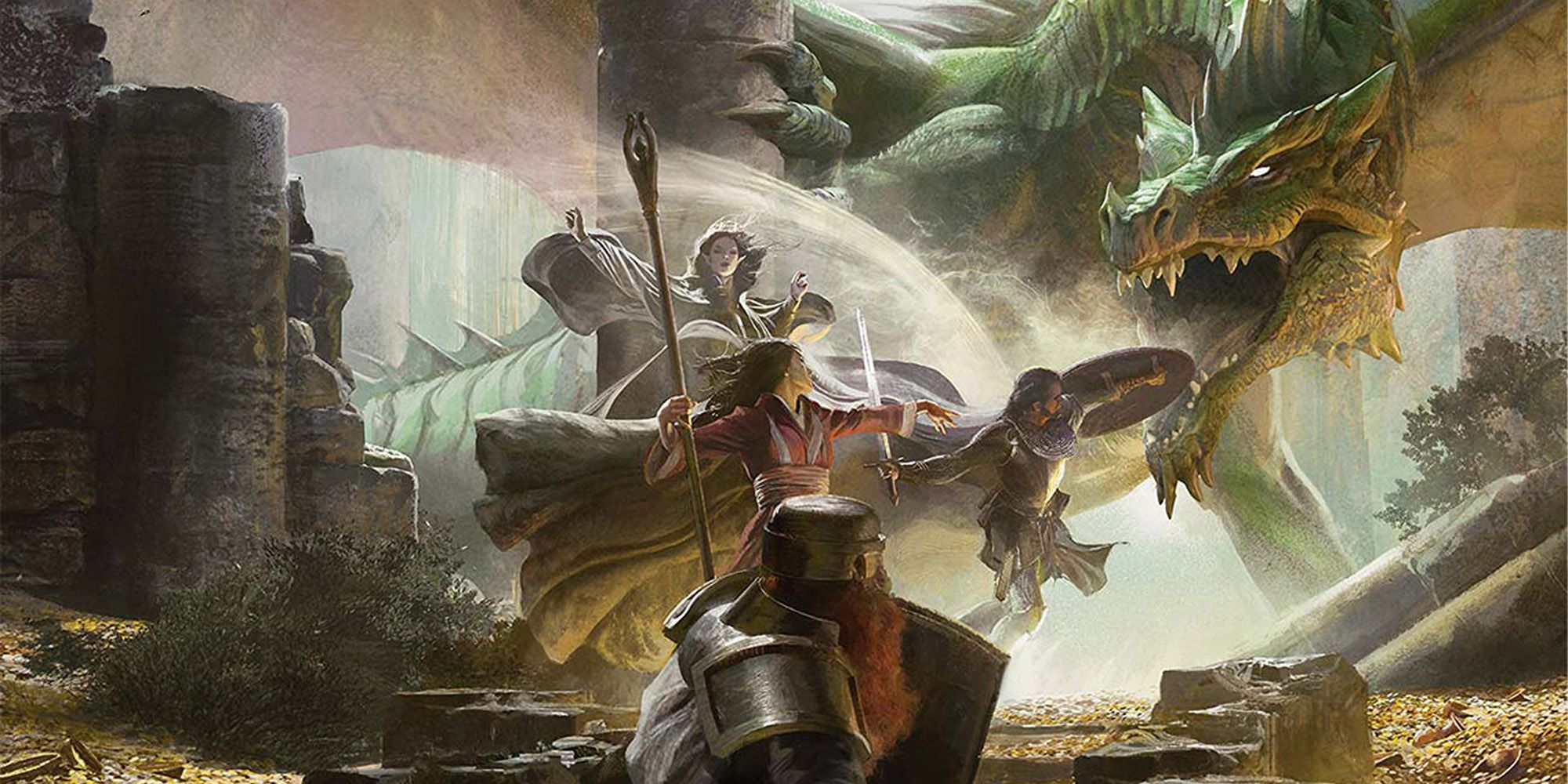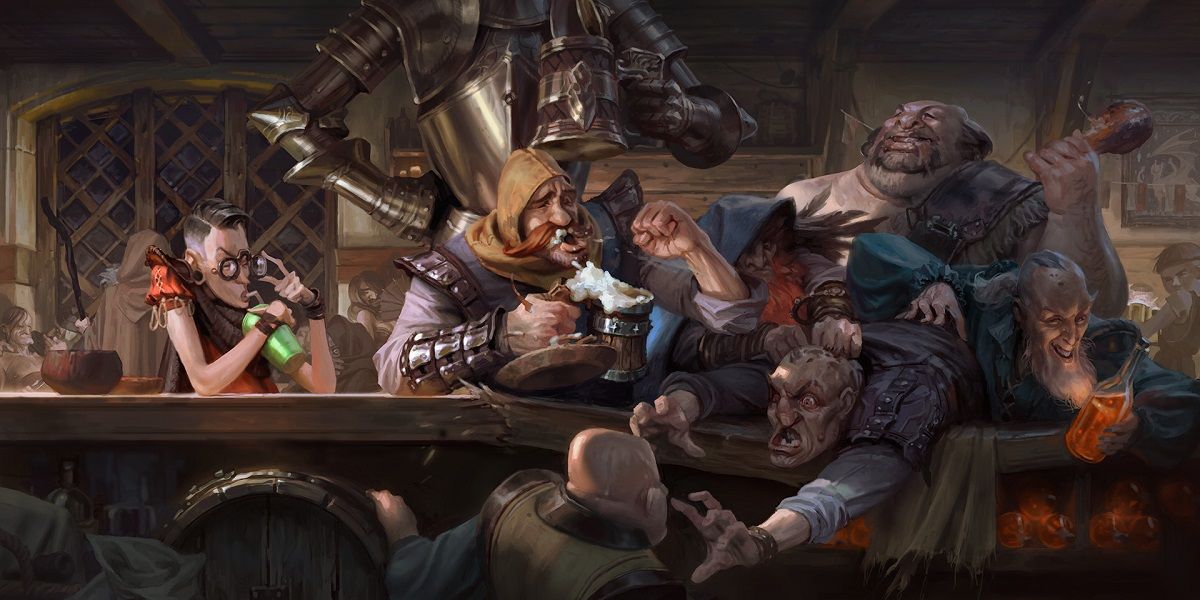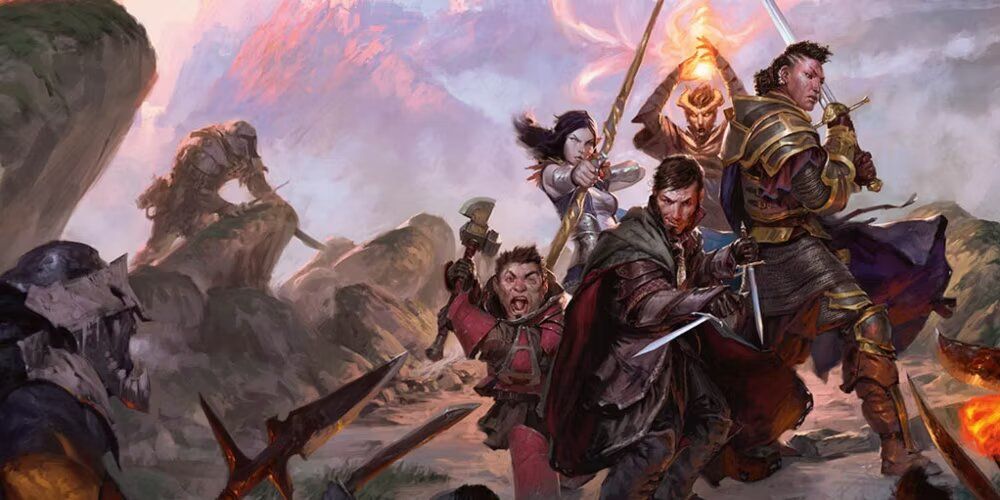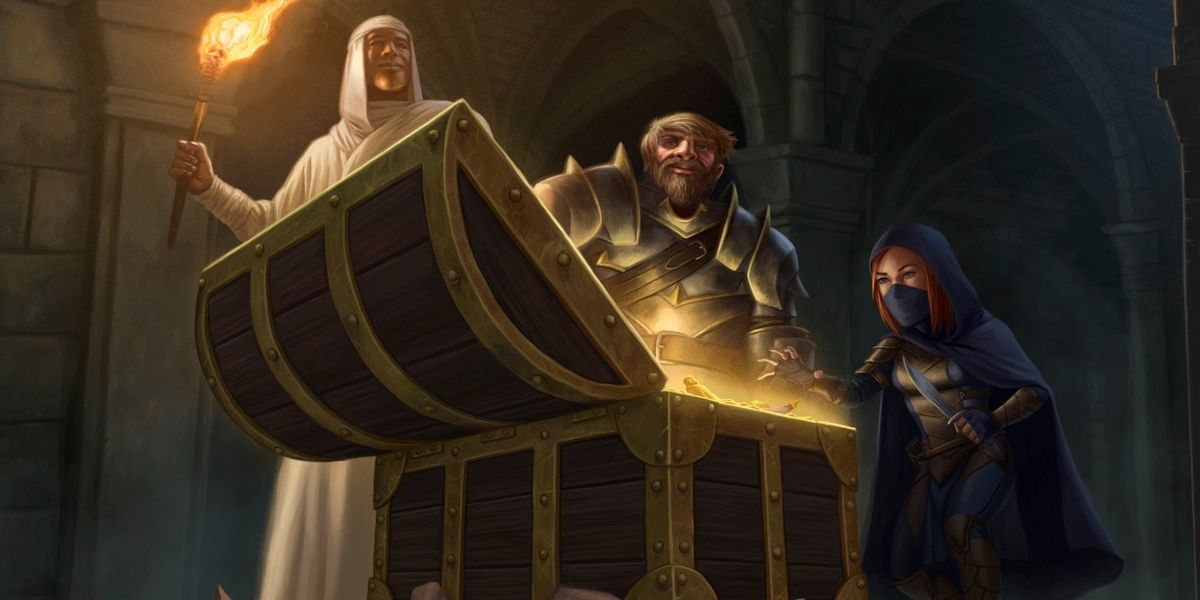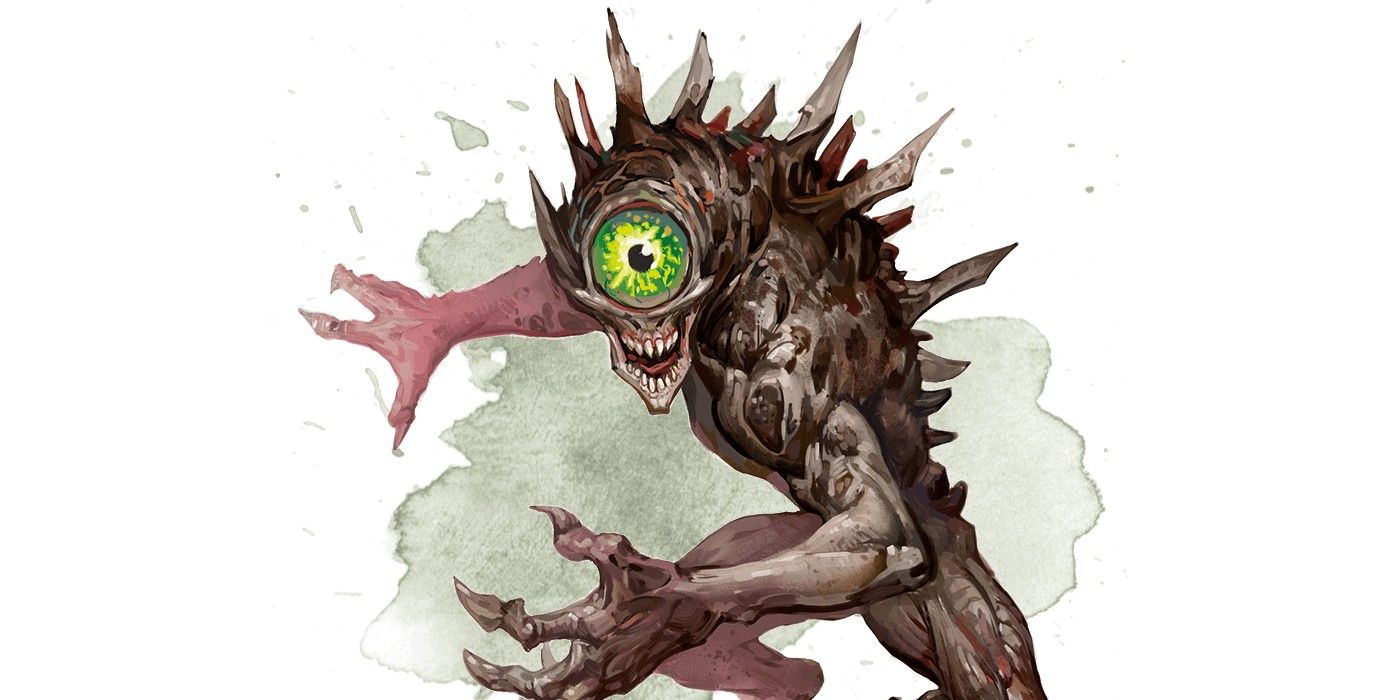Quick Links
When starting out, the task of running a game of Dungeons & Dragons can be intimidating. This leads many novice Dungeon Masters to choose a pre-written adventure for their first campaign. A premade D&D 5e module can reduce prep time and the mental overhead involved in DMing and still be customized to suit the table's tastes. Lost Mine of Phandelver is no longer the go-to introduction, having been replaced with Dragon of Stormwreck Isle in the new starter set. Nonetheless, it's worthy of consideration for a group's first adventure.
Lost Mine of Phandelver is a single adventure spanning levels one through four and split into four chapters. It goes from a simple job escorting cargo, to clashes against local goblins and ruffians, to plunging through the fabled Wave Echo Cave against a sinister mastermind. Lost Mine of Phandelver is so iconic that D&D 5e returned to its setting in 2023 with Phandelver and Below: The Shattered Obelisk, a pre-made adventure expanding on the setting.
Updated February 20, 2024 by Jenny Melzer: Lost Mine of Phandelver remains one of D&D 5e's best pre-made campaigns despite its age. It's a starting step for new players that remains fun for veterans. Expanding on this adventure with Phandelver and Below: The Shattered Obelisk, this guide has been updated to incorporate CBR's most recent standards in formatting.
Who Will Enjoy Lost Mine of Phandelver?
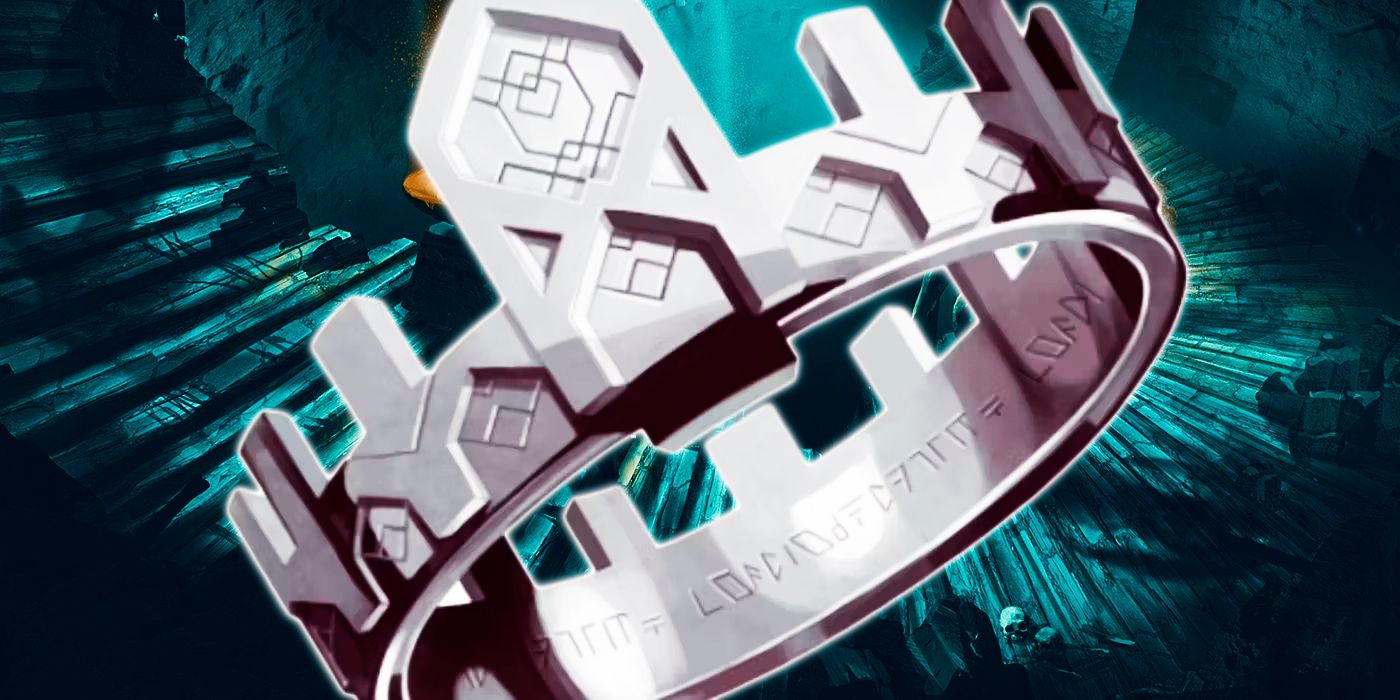
Every New Magic Item In Phandelver And Below: The Shattered Obelisk, Ranked
The Dungeons & Dragons 5e adventure module Phandelver And Below: The Shattered Obelisk comes with a slew of new magic items with unique abilities.Lost Mine of Phandelver is a simple adventure, with only a few factions to keep track of and a direct, straightforward set of goals every step of the way. As befits a starter set adventure, this makes it ideal for a new group of players. However, as one of the first adventures published for D&D Fifth Edition, it does suffer from some balance issues. For instance, the first few encounters -- before the players even move past level one -- are notoriously deadly. Even after the players have gained some power, they'll have to contend with an extraordinarily powerful green dragon in Chapter Three. While these are not inherently bad (and can actually present opportunities for DMs to come up with a creative approach to otherwise deadly encounters), the book does little to guide new DMs into anything but combat.
This means that Lost Mine is best suited for a group of new players who need a simple, straightforward introduction to D&D, but it works best in the hands of a DM who is comfortable tweaking the balance of encounters, guiding and encouraging players towards unorthodox and diplomatic solutions when outmatched, or both. While an experienced party could likely handle the entire adventure relatively easily, the target audience might find themselves overwhelmed by difficult fights if the DM doesn't use their best judgment to lower the difficulty.
New DMs Running Lost Mine Of Phandelver May Want to Take Heed
Lost Mine of Phandelver can be run and enjoyed by any D&D 5e table. However, it's specifically designed as a pre-made D&D 5e campaign for new players and potentially new DMs. It leans into traditional adventures, a straightforward narrative, and a gradual introduction of mechanics. New DMs might need more tips beyond those offered by the Lost Mine of Phandelver book.
Lost Mine of Phandelver is meant to take an adventuring party from first level to fifth, with the players achieving this final milestone as they emerge victorious. This is a substantial increase across a single adventure that can leave players out of their depth if they miss some experience. As a rule of thumb, players should hit level two upon reaching Phandalin, level three after defeating the Redbrands, and level four before they enter Wave Echo Cave.
Brand-new DMs who have never played D&D before might struggle with the rules and flow of combat. Some of this is natural and expected for new DMs. However, it can be worth a DM running through the first encounter in 'Chapter 1: Goblin Arrows' a few times by themselves, playing both sides. This helps them get used to combat's base mechanics and ensures they won't be left scrambling while trying to help new players learn.
It's well worth reading Lost Mine of Phandelver all the way through once before running it. This is easier than with most other modules due to its short length. Then, the DM should read each chapter and area again before the players reach it in a session. This way, they effectively revise information they already know rather than scrambling to internalize new rules and storylines as they go along. This adventure offers players a lot of quests upfront, particularly once the players have defeated the Redbrands. A DM shouldn't feel obligated to maintain this sandbox structure if they're having trouble keeping the quests straight. It's entirely valid for someone new to D&D 5e to offer the players the quests one at a time until the players find Wave Echo Cave.
There Are a Lot of Important NPCs In Lost Mine Of Phandelver
|
Chapter Number |
Notable NPCs |
|---|---|
|
Chapter 1: Goblin Arrows |
Gundren Rockseeker, Sildar Hallwinter, Klarg |
|
Chapter 2: Phandalin |
Halia Thornton, Iarno Albrek |
|
Chapter 3: The Spider's Web |
Daran Edermath, Townmaster Harbin Wester, Quelline Alderlaf, Reidoth, Sister Garaele, King Grol |
|
Chapter 4: Wave Echo Cave |
Nundro Rockseeker, Mormesk the Wraith, The Black Spider |

First-Ever Dungeons & Dragons Live Theatrical Production is in the Works
Hasbro will collaborate with Curious Hedgehog and Showpath Entertainment to stage Dungeons & Dragons: The Twenty-Sided Tavern.Lost Mine of Phandelver comes complete with a quest hook centered on the dwarven explorer Gundren Rockseeker. He commissions the party to meet him in Phandalin. However, Gundren is nowhere to be found when the party arrive, having been kidnapped by the goblins of Cragmaw Castle. Finding him can be one of the adventure's overarching plot threats.The first chapter introduces two more notable NPCs. Klarg is the leader of the goblins at Cragmaw Hideout, a vicious bugbear who speaks about himself in the third person. He's the biggest antagonist on the player's journey to Phandalin. Sildar Hallwinter is Gundren's friend and a prisoner of the goblins. If freed, he can become an ally throughout Lost Mine of Phandelver.
'Chapter 2: Phandalin' introduces many questgiver NPCs in Phandalin. However, the conflict with the Redbrands takes center stage before the PCs can explore these opportunities. Halia Thornton is the only one who can take center stage in the conflict. She aims to use the NPCs to decapitate the Redbrand leadership and let her take control. Iarno Albrek is a traitor to the Lords' Alliance who doubles as Glasstaff, the Redbrands' leader. He sends his soldiers after the party to try and drive them out of Phandalin.
'Chapter 3: The Spider's Web' lets players follow up on the plot threads they may have heard of when first exploring Phandalin. As a result, many of the townspeople become more prominent. Reidoth is a new NPC who stands out. He's an antisocial druid who can point the players to Cragmaw Castle. If they ask him to guide them to Wave Echo Cave, he has them face off with a dragon first. King Grol is the ruler of Cragmaw Castle who works for the Black Spider. He's an old and powerful bugbear who is happy to fight the party head-on but will attempt to intimidate them first.
The Black Spider is Lost Mine of Phandelver's overarching antagonist and the most notable NPC in Wave Echo Cave. He's a drow agent hoping to secure the cave, its secrets, and the mine for himself. Despite being prepared to kill the party, the Black Spider wants to learn all he can about them at first. Wave Echo Cave also has Mormesk the Wraith, leader of the dungeon's undead who can be bribed into not attacking. It also contains Nundro Rockseeker, Gundren's surviving brother.
Combat In Lost Mine Of Phandelver Can Be a Bit Imbalanced
|
Chapter Number |
Notable Combats |
|---|---|
|
Chapter One: Goblin Arrows |
Goblin ambush, wolves, Klarg & allies |
|
Chapter Two: Phandalin |
Redbrand confrontation, skeletons, nothic, bugbears & goblin, Iarno Albrek |
|
Chapter Three: The Spider's Web |
Hamun Kost & zombies, Venomfang, orcs & ogre, hobgoblins, grick, King Grol & doppelganger |
|
Chapter Four: Wave Echo Cave |
Stirges, ghouls, bugbears, zombies & flameskull, Mormesk the Wraith, spectator, the Black Spider |
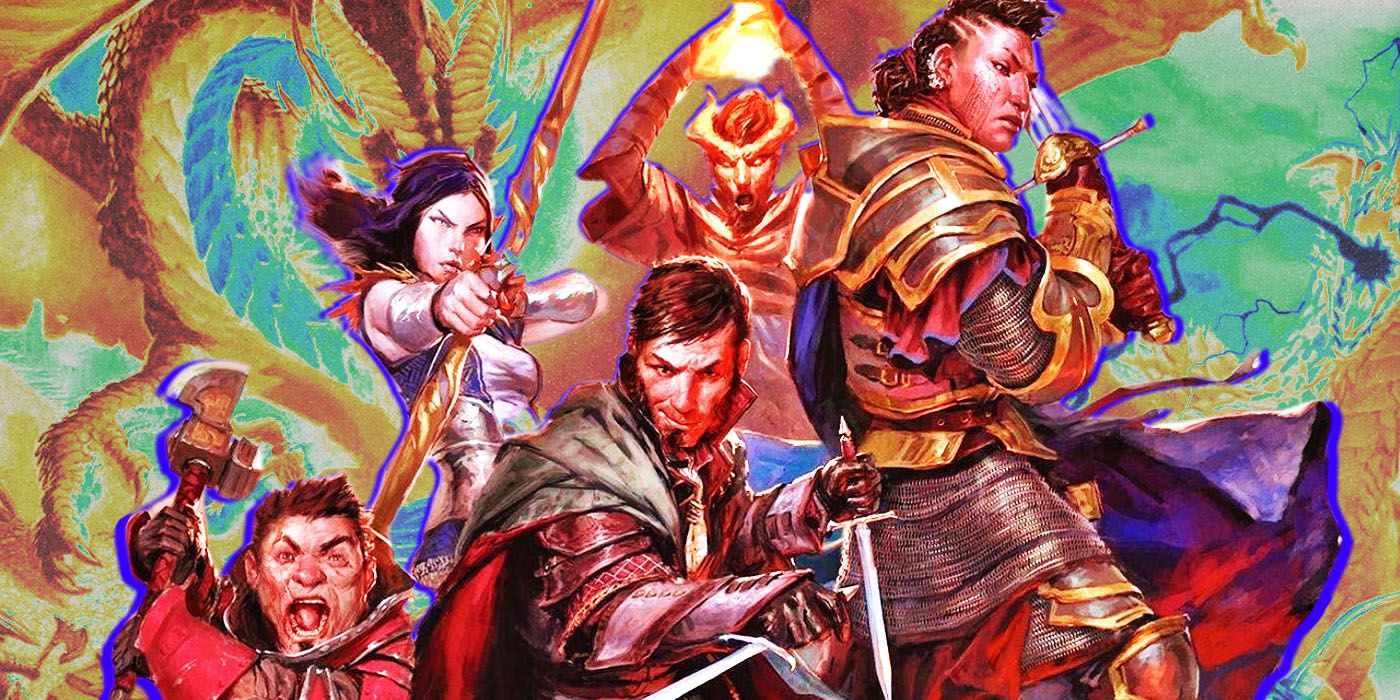
Dungeons & Dragons: What Are Reactions & How Do They Work?
Every Dungeons & Dragons character has access to reactions during combat, but not everyone takes advantage of them. Here's how they work.Lost Mine of Phandelver has been designed as an introductory campaign for D&D 5e, and it shows. Most of the combats are very manageable. Players fight small groups of humanoids or other creatures at a suitable level. Most of Lost Mine of Phandelver is well-balanced for the players to overcome. With a bit of clever thinking, players might even trivialize a few fights. However, not every fight is well-balanced. Lost Mine of Phandelver even opens with a notoriously lethal goblin ambush. Due to the ranged nature of the battle, the potential for surprise, and the fragility of first-level D&D 5e characters, players might go down before they can even take a turn. It can be worth pulling punches in this initial battle.
There are some other significant speedbumps in Lost Mine of Phandelver. Venomfang is a young green dragon whom level three players might pick a fight with. The goal isn't to kill him, but to drive him off. Nonetheless, a single breath weapon can theoretically down an entire party. Wave Echo Cave can have the players outnumbered by ghouls who can inflict paralysis, or taken out by a fireball from its one flameskull. Players should tread cautiously in these encounters, and the DM might not want to play for keeps.
Lost Mine of Phandelver also often encourages players to find alternate routes besides killing everything. Many of the fights in the Redbrand Hideout or Cragmaw Castle can be avoided or delayed through deception and disguise. Several NPCs can be reasoned with, intimidated away, or even bribed into not fighting. Agatha, a D&D banshee monster, will refuse to fight altogether. A nonviolent solution is the only way to progress her quest.
There are Plenty of Treasures & Rewards In Lost Mine Of Phandelver
|
Chapter Number |
Notable Rewards |
|---|---|
|
Chapter One: Goblin Arrows |
Sildar's reward, Lionshield Coster supplies, jade statuette, Potions of Healing |
|
Chapter Two: Phandalin |
Lords' Alliance membership, Zhentarim membership, Potions of Healing, Potion of Invisibility, Scroll of Augury, Talon (+1 Longsword), Staff of Defense, Scroll of Charm Person, Scroll of Fireball |
|
Chapter Three: The Spider's Web |
Order of the Gauntlet membership, Harpers membership, Emerald Enclave membership, Potions of Healing, Ring of Protection, Scroll of Darkness, Scroll of Misty Step, Scroll of Lightning Bolt, Hew (+1 battleaxe), Scroll of Silence, Scroll of Revivify, map to Wave Echo's Cave |
|
Chapter Four: Wave Echo Cave |
Boots of Striding and Springing, Potion of Vitality, Lightbringer (+1 Mace), Dragonguard (+1 Breastplate), Gauntlets of Ogre Power, Potion of Healing, Spider Staff, share of mine profits |
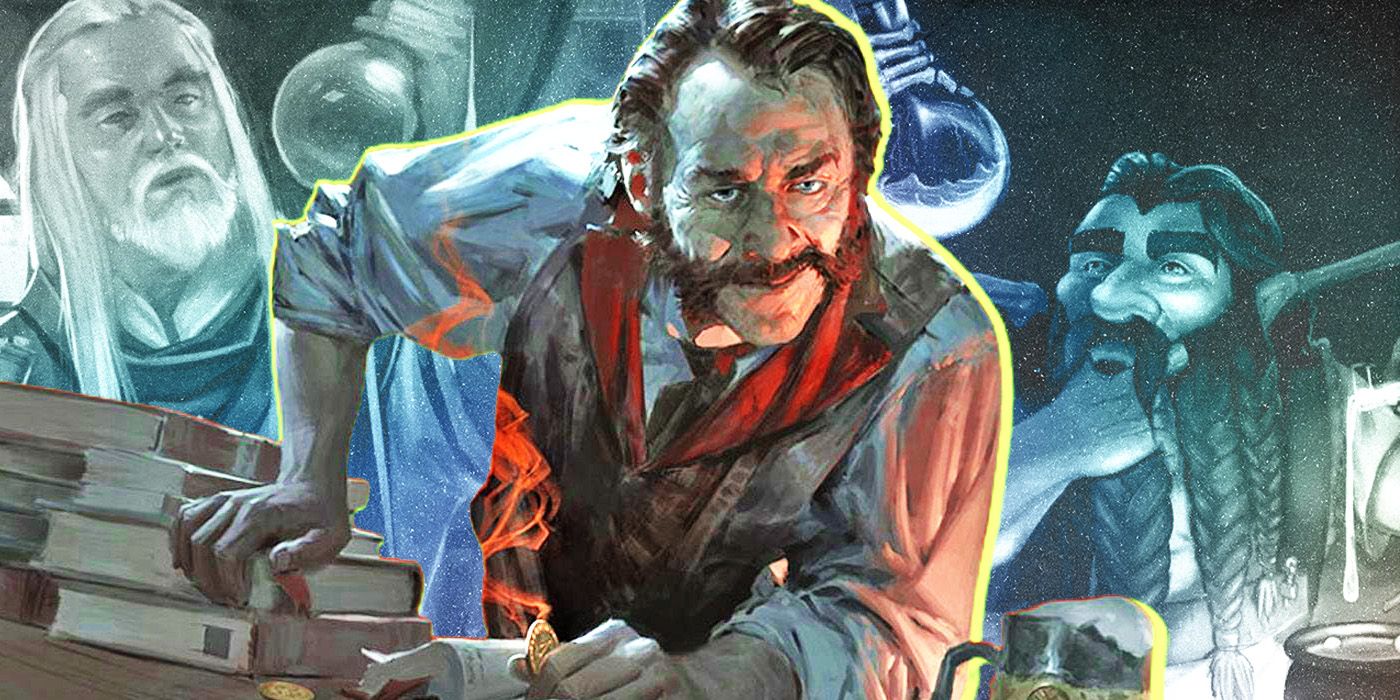
Dungeons & Dragons: Tips For Homebrewing NPCs
Creating living, breathing, functional NPCs is important work, but can be done, and done well, by keeping just a few things in mind.Lost Mine of Phandelver is open-handed with rewards. Notably, gold flows heavily throughout the adventure. In total, an adventuring party can get over 5000 gold pieces if they do every quest, find every reward, and sell everything non-magical they can get their hands on.
Lost Mine of Phandelver also offers players many of D&D 5e's magic items to start their adventuring career. It has many Potions of Healing and others like Invisibility, Vitality, and more. Later on, scrolls also become commonplace consumable items, even offering powerful D&D 5e spells like Fireball, Lightning Bolt, and Revivify.
There are even enchanted items up for grabs. Lost Mine of Phandelver contains three +1 weapons of different types, some of which have additional features. There's also a +1 Breastplate meant to fight dragons. A Staff of Defense, Boots of Striding and Springing, Ring of Protection, Gauntlets of Ogre Power, and a Spider Staff add to the many D&D 5e magic items that thorough players can find.
Not all rewards are material. Lost Mine of Phandelver has several Phandalin NPCs offer players membership in organizations like the Harpers or Zhentarim in reward for their efforts. This comes with few upfront benefits, but connections and influence can pay off greatly further down the line. The Rockseeker brothers also give the players a 10% stake in their mine, becoming a valuable source of future profit. Enterprising players might seek other opportunities themselves. For instance, nothing stops players from taking Cragmaw Castle for their own base of operations and becoming powerful political players in the area. Likewise, they can attempt to rebuild Thundertree after driving off its threats, potentially setting up a rival town to Phandalin.
Lost Mine of Phandelver Has Some Narrative Dead Ends
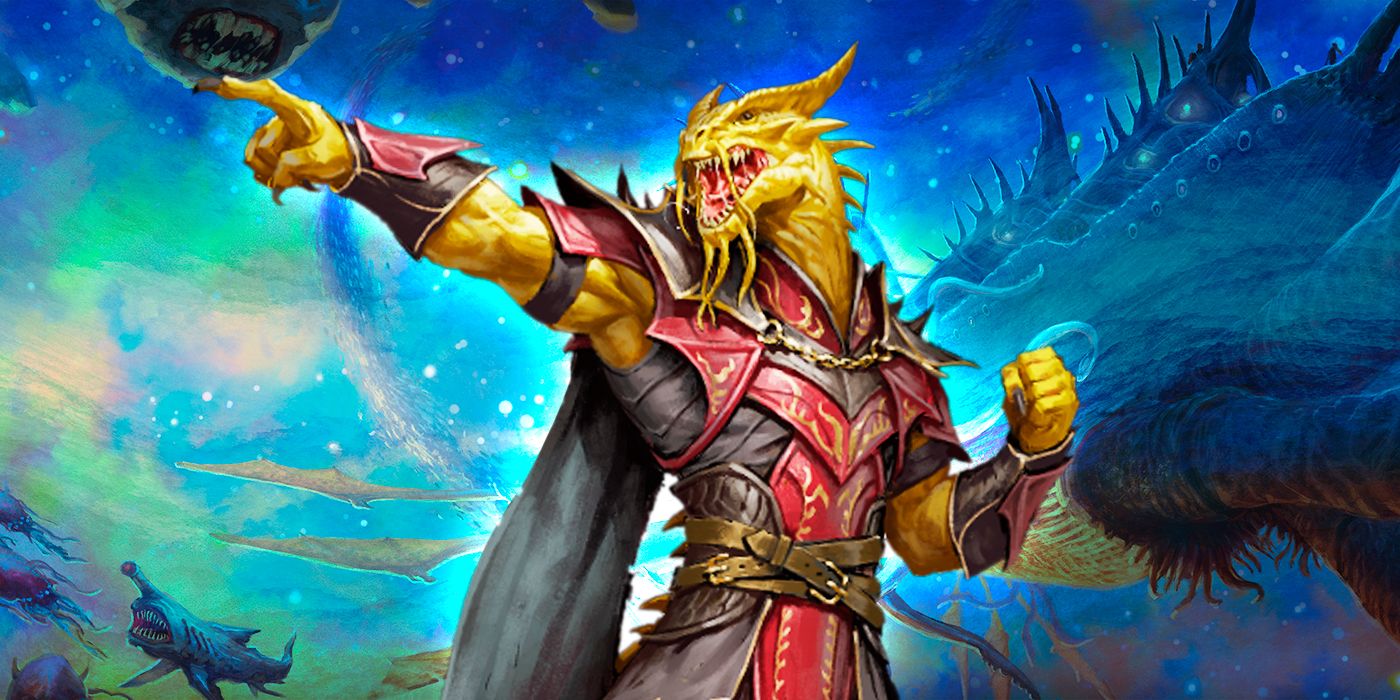
Dungeons & Dragons: When Is It Time To Try Another TTRPG?
Dungeons & Dragons is arguably the most popular TTRPG out there, but sometimes players would be better suited trying a different roleplaying game.Lost Mine of Phandelver has several encounters that, while interesting, don't offer anything else to players who try to dig deeper. Between a power struggle for control of a goblin tribe, strange nothic in a bandit hideout, and the dragon that might be driven off by the party, there are a few significant encounters that are never referenced again, even when it seems like there should be more payoff or foreshadowing involved.
Take, for instance, the dragon -- a challenge rating 8 creature being fought by a level three party. Despite serving as a major, potentially deadly, challenge, it simply exists with no ties to the greater story. If the party drives it away, it's never heard from again, and the adventure never addresses the possibility of speaking with it.
These dead-end encounters, many of which seem ripe for tying into the greater narrative, can be fixed easily enough by a skilled DM altering the existing narrative. However, requiring such a skill in the first place is a bit of a detriment to its newcomer-friendly packaging. Still, Lost Mine functions well enough without weaving all of these dead ends back together, so long as players are satisfied with the encounters themselves.
Lost Mine of Phandelver Was Always Meant to Be the First Step In a Longer Adventure
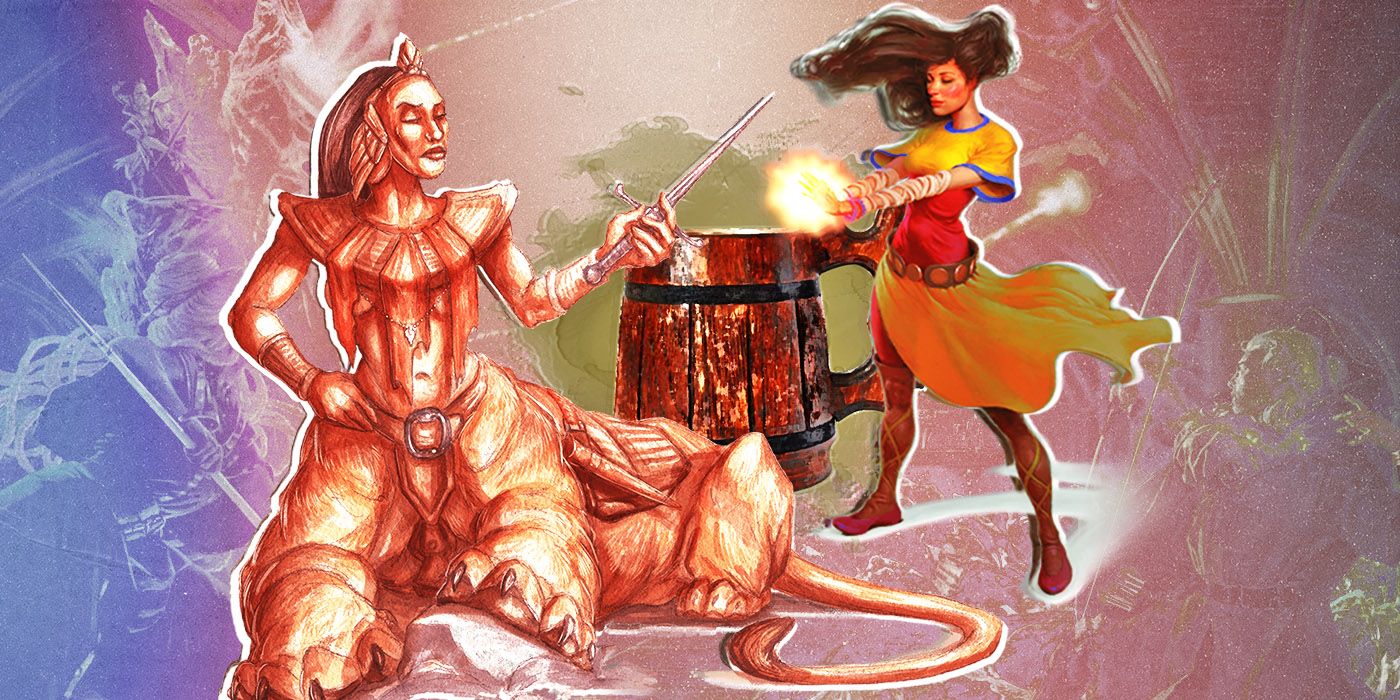
Dungeons & Dragons: Tips For Homebrewing Towncraft
These are the steps to homebrewing a functional, engaging, fantastical and living town for any D&D campaign.Ideally, Lost Mine of Phandelver should be used as the first adventure in a long-running campaign. Between the possible escape of a vengeful green dragon, a huge monetary reward (including a percentage of the profits from the newly reopened mine), and even a map that the book encourages DMs to use as a hook for future adventures, this is intended to be a launching point for the party's further adventures. In this it excels, offering plenty of room for a DM to string together more published adventures or start writing their homebrew content. The updated version of this adventure featured in, Phandelver and Below: The Shattered Obelisk, does exactly that, providing players with much more to explore, and even eventually leading to a Far Realms connection that will have adventurers on the edge of their seats.
As long as the DM is wary of unintended difficulty spikes and is mindful in planting the seeds for further adventures, Lost Mine of Phandelver can be a phenomenal first foray into D&D. A simple, straightforward adventure with a satisfying conclusion is all the game needs to hook new players, and Lost Mine delivers that while still allowing for the further development of more complex adventures as the party and players both grow in experience.
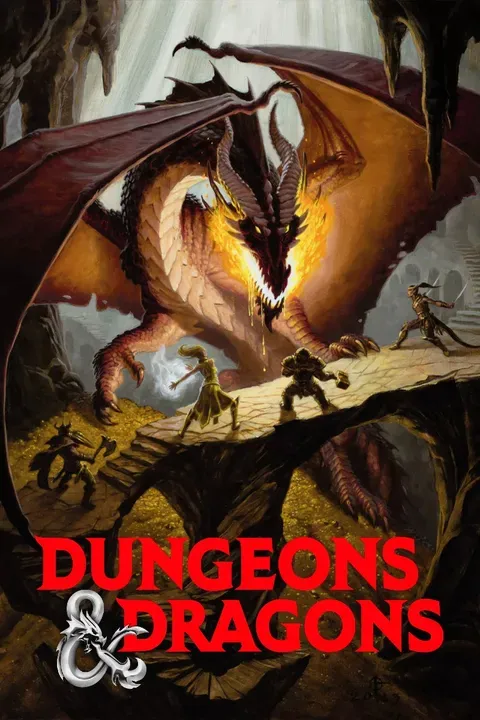
Dungeons and Dragons
A fantasy roleplaying tabletop game designed for adventure-seekers, the original incarnation of Dungeons & Dragons was created by Gary Gygax in 1974.
- Franchise
- Dungeons & Dragons
- Original Release Date
- January 26, 1974
- Publisher
- Wizards of the Coast , TSR Inc.
- Designer
- E. Gary Gygax , Dave Arneson
- Player Count
- 4-8 Players Recommended
- Age Recommendation
- 12+
- Length per Game
- 3 hours +
- Expansions
- Dungeons & Dragons 2nd Edition , Dungeons & Dragons 3rd Edition , Dungeons & Dragons 4th Edition , Dungeons & Dragons 5th Edition

